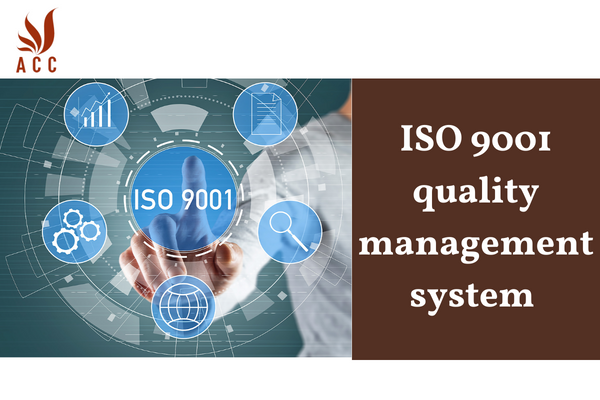The ISO 9001 Quality Management System (QMS) is an internationally recognized standard that helps organizations improve their quality management processes. It is a framework that can be used by organizations of all sizes and in all industries to ensure that they are meeting the needs of their customers and other stakeholders.
There are a variety of formations available to help organizations implement and maintain an ISO 9001 QMS. These formations can be tailored to the specific needs of the organization, such as the size of the organization, the industry it is in, and the level of expertise of the participants.

Formations - ISO 9001 Quality Management System
1. Introduction to ISO 9001
This type of training provides an overview of the ISO 9001 standard and the benefits of implementing a QMS. It is a good starting point for anyone who is new to ISO 9001 or who wants to learn more about the standard.
2. Foundation ISO 9001
This type of training provides a more in-depth understanding of the ISO 9001 standard. It covers the requirements of the standard in detail and how to implement them.
3. Lead Implementer ISO 9001
This type of training is designed for individuals who want to lead the implementation of a QMS in their organization. It covers the skills and knowledge needed to successfully implement a QMS, including planning, training, and auditing.
4. Lead Auditor ISO 9001
This type of training is designed for individuals who want to become qualified to audit QMSs. It covers the principles and practices of auditing, as well as the requirements of the ISO 19011 standard for auditing quality management systems.
5. Other types of ISO 9001 training
In addition to the types of training listed above, there are a number of other types of ISO 9001 training available. For example, there are training courses that focus on specific aspects of the ISO 9001 standard, such as risk management or customer satisfaction. There are also training courses that are tailored to specific industries or sectors.
When choosing an ISO 9001 training course, it is important to consider your needs and goals. If you are new to ISO 9001, an introduction course is a good place to start. If you are responsible for implementing a QMS in your organization, a foundation or lead implementer course may be a better choice. And if you want to become qualified to audit QMSs, a lead auditor course is the right option.
Here are some tips for choosing an ISO 9001 training course:
- Consider your needs and goals. What do you want to achieve by taking the training?
- Do your research. Read reviews of different training courses and compare the curriculum and instructor credentials.
- Ask questions. Contact the training provider and ask them questions about the course content, delivery method, and costs.
By choosing the right ISO 9001 training course, you can gain the knowledge and skills you need to improve the quality of your organization's products, services, and processes.
6. Frequently asked questions
Q1: Why is ISO 9001 important for organizations?
Answer: ISO 9001 provides a framework for organizations to establish and maintain an effective quality management system. It enhances customer satisfaction, improves internal processes, and demonstrates a commitment to delivering quality products and services.
Q2: What are the key elements of a quality management system according to ISO 9001?
Answer: ISO 9001 emphasizes key elements such as quality policy, objectives, process management, resource management, measurement and analysis, and continual improvement. These elements collectively contribute to the overall effectiveness of the quality management system.
Q3: How does ISO 9001 benefit customers?
Answer: ISO 9001 benefits customers by ensuring that products and services meet or exceed their expectations. The standard promotes a customer-focused approach, leading to improved quality, better communication, and increased customer satisfaction.
Q4: What is the process of obtaining ISO 9001 certification?
Answer: Obtaining ISO 9001 certification involves several steps, including implementing a quality management system, conducting internal audits, and undergoing a certification audit by an accredited certification body. Successful certification demonstrates compliance with ISO 9001 standards.
Q5: How does ISO 9001 contribute to continuous improvement?
Answer: ISO 9001 promotes a culture of continuous improvement by requiring organizations to monitor and measure their processes, analyze data, and implement actions to enhance performance. The emphasis on continual improvement ensures that organizations adapt to changing circumstances and strive for excellence.
Nội dung bài viết:






Bình luận